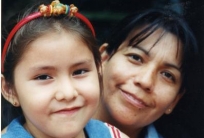You are invited to a special philanthropic briefing focused on the opportunities and challenges facing low-wage and immigrant women working in the beauty salon and domestic work sectors in the U.S. The briefing will take place on Thursday, November 13, 2014 from 12-4:30pm at the Department of Labor in Washington D.C., commencing with a networking lunch. A moderated panel will include salon workers and domestic workers, advocates from the National Healthy Nail and Beauty Salon Alliance and the National Domestic Workers Alliance, staff from the White House Initiative on Asian Americans and Pacific Islanders, and key federal agency leaders. Please join us.
To RSVP or for more information, please email: WhiteHouseAAPI@ed.gov.
Background
Low wage and immigrant women workers are getting the short end of the stick. On a daily basis and often for long hours, beauty salon workers handle solvents, glues, polishes, dyes, hair straighteners and other products containing chemicals known or suspected to cause cancer, allergies, respiratory, neurological and reproductive harm while providing services to clients. Nationwide, nearly 500,000 individuals are formally employed in this sector, excluding the thousands of independent contractors who rent stations in salons. Over 90% of salon workers are women. Among nail salon workers alone, the majority are women of color, with an estimated 42% Asian immigrants, and most are of reproductive age. Most salon workers earn an average of $26,700 per year. Despite daily occupational exposures and the growing concern for worker safety, there is extremely limited federal and state oversight of chemical use and exposures in salons, leaving women workers facing the untenable choice of trading their health for their livelihoods. There is a growing movement aimed at advancing salon worker health, safety and rights nationally.
Every day, across the nation, millions of domestic workers — 95% of whom are women and 65% of whom are immigrants or people of color — act as the primary caregivers and safekeepers for other people’s children, homes, elders and loved ones. The care they provide makes other work possible for millions of families in the United States. Domestic work makes it possible for seniors and people with disabilities to live with dignity at home. Domestic workers make it possible for many busy families to provide safe, reliable care for their children and their homes. Yet, domestic workers have historically been excluded from basic labor standards and protections, such as minimum wage standards. Many suffer abuse at the hands of their employers — they are overworked, underpaid, and largely invisible as isolated workers in private homes. Domestic workers and their allies are currently organizing across the U.S. to gain respect, recognition and inclusion in labor protections.

